Net Zero on Campus
A guide and accompanying toolkit for universities and colleges to accelerate climate action worldwide
Watch our Net Zero on Campus webinar launch and get involved!
Eastern Hemisphere Webinar
Featuring Climateworks and SDSN Chair John Thwaites, Monash Vice-Chancellor Margaret Gardner, and experts from the region
Western Hemisphere Webinar
Featuring SDSN President
Jeffrey Sachs, SDSN Vice President of Networks
María Cortés Puch, and global experts
Overview
As the risks and impacts of climate change become more visible every year, the call for net zero emissions is no longer restricted to country-level commitments. It has become equally important for non-state actors, like business corporations and large institutions, to establish targets and pathways to net zero by mid-century or sooner.
Universities and colleges across the world have the unique opportunity in this race to zero, to not only build strategies to reduce emissions within their operations, but to also champion knowledge, climate research, and action within their communities.
As universities and colleges across the world continue to commit to reaching net zero emissions, it is crucial that lessons and resources are shared in a comprehensive and intentional manner to accelerate campus decarbonization efforts. Thus, SDSN, the Climateworks Centre, and Monash University have come together to leverage their expertise and networks of academic institutions around the world to develop a guide to net zero campuses and this accompanying online toolkit. Both serve as timely and valuable resources that build on frameworks and tools developed by universities at the forefront of climate action around the world.
The guide and this accompanying online toolkit will enable universities and colleges to accelerate the planning and implementation of net zero strategies, and act as living laboratories for testing solutions. These resources will be applicable to universities and colleges of different sizes and regions, as well as decarbonization experiences and progress, equipping them with both the knowledge (via the guide) and tools (via the toolkit) they need to accelerate their climate action plans, while creating new communities of practice.
Net Zero on Campus Guide
Unlike the majority of guiding materials on university decarbonization, Net Zero on Campus Guide strictly dives into the decarbonization of campus operations. The guide offers both “why” and “how-to” information, outlining both the steps of the decarbonization journey, as well as practical campus initiatives across the action areas of energy, mobility, facilities, waste and recycling, procurement and initiatives that extend beyond campus operations.
Although its findings are applicable to all relevant stakeholders, the desired audience of the guide consists of: campus sustainability managers, university board members and directors, and student bodies because these groups have direct control over their campus operations and campus decarbonization requires systemic efforts, including both bottom-up and top-down approaches.
Online Toolkit
As an appendix to the guide, this online toolkit provides a wide array of examples of resources that can support the planning and implementation of decarbonization efforts on college and university campuses worldwide. The online toolkit offers both resources and case studies that are categorized by each campus action area: energy, mobility, facilities, waste and recycling, procurement, and beyond campus operations. All of the resources can be sorted by other characteristics including theme, type, and decarbonization experience required in order to facilitate navigation and narrow down searches (details can be found on each campus action area page below).
The toolkit also includes additional resources that can help further accelerate campus decarbonization endeavors, such as links to other notable networks and resource hubs offered by the EAUC, Race to Zero, and Second Nature. This toolkit aims to serve as a
central repository of key existing resources for net zero campus efforts
that would otherwise need to be found and accessed separately.

Energy
As universities and colleges provide spaces for working, studying, teaching, and in some cases living, they consume significant energy to power lighting, technology, appliances, hot water and space heating or cooling. Universities and colleges can contribute to accelerating the energy transition by reducing their energy demand and supporting renewable energy generation.

Mobility
Addressing the ways people travel to and from campus will be critical in reaching net zero emissions. Key strategies include: avoiding the need to travel where possible; reducing the reliance on private vehicles and encouraging sustainable options like walking, cycling, or public transport; and improving campus fleet and freight emissions.

Facilities
Campus facilities include buildings for working, teaching and studying, laboratories, residence, and recreation, like theaters and gymnasiums. Facilities span across the areas of energy, materials, transport, and waste, all of which need to simultaneously contribute to a college or university’s net zero commitment. Strategies include replacing carbon and energy intensive equipment, establishing green laboratories, and retrofitting campus buildings.

Waste and Recycling
The waste sector contributes a proportionally small amount of greenhouse gases compared to the energy and mobility areas on campus. However, to reach net zero, it is crucial that emissions from the waste sector are addressed, such as via the implementation of a circular economy and material recovery strategies on campus.

Value Chain
When purchasing equipment and supplies for the university or college, it is important that institutions follow sustainable procurement practices in order to ensure that they target not only Scope 1 and Scope 2, but also Scope 3 emissions. This extends to procurement of appliances and equipment, catering, materials for laboratories and libraries, among others.

Beyond Campus Operations
There are several aspects of climate action beyond campus operations that play a key role in college and university decarbonization efforts. These include the role of universities and colleges acting as an amplifier of change, engagement with student bodies, securing financing for net zero, and encouraging net zero aligned education, research, and innovation.

Additional Resources, Networks, and Initiatives
Other resources (tools, informational websites, guides, reports, and videos), university climate and sustainability networks, and annual COP initiatives can be leveraged to further support campus decarbonization efforts.
A university or college’s journey to net zero comprises on campus initiatives, building climate leadership and governance, driving research and knowledge exchange, and using education and curricula along with community mobilization to drive decarbonization. Although each journey is unique, it is important to consider the key principles and stages of a pathway toward net zero. See the Net Zero on Campus guide for more information.

Figure 5. Guiding principles to consider at each stage of the campus decarbonization journey
Guiding Principles

Build institutional structure to support net zero commitments
Institutional and operational structures are the governing bodies, working groups and processes that will help in preparing and implementing the plan, drive transparency, accountability, and stakeholder participation. It is critical to ensure that supporting institutional structures exist to implement net zero university initiatives.

Address all emissions
The key objective of a comprehensive net zero university plan is to reduce all greenhouse gas emissions: those directly tied to the university’s operations and energy consumption (Scope 1 and Scope 2), and those that occur further along the value-chain (Scope 3).

Target reaching net zero by or before 2050
Universities and colleges with a climate commitment must target reaching net zero emissions by or before the year 2050. In addition to the final net zero target year, medium-term interim targets also need to be set; these enable the timely review of performance against the latest technological, regulatory or scientific developments.

Demonstrate quick wins in decarbonization
The long and medium-term targets in net-zero plans must be backed by immediate and ambitious action to reduce emissions that demonstrate tangible actions taken by a university. The four pillars of decarbonization can be used to identify simple, immediate measures that bring quantifiable and immediate emissions reductions:
- Energy efficiency,
- Decarbonizing electricity,
- Electrification and fuel switching, and
- Carbon capture

Assess long-term costs and benefits
It is important to evaluate both the financial and non-financial costs and benefits of net zero initiatives through their lifetimes. Such cost-benefit analyses allow universities to build evidence-based and robust plans that can help to get more support and buy-in from key stakeholders.

Monitor, evaluate and learn
Reflecting on the progress of net-zero initiatives is crucial to ensure these plans can adapt and leverage new developments in climate-science, the regulatory environment, and innovation in finance and technology. Reviewing the progress toward net zero will also promote accountability and transparency of action.

Use net zero to engage and build alliances
Campus initiatives can act as living labs with solutions-testing and demonstration to the community beyond campus precincts. Equally important is the education and the research on climate change and adaptation that is driven by universities and colleges. As respected thought institutions with the ability to engage various stakeholders, universities and colleges are uniquely positioned to be agents of positive social change in their local communities and beyond.
Get Involved with Net Zero on Campus
Connect with Other Networks
- Join global networks of academic institutions working on decarbonization: SDSN, Second Nature, and EAUC. See our resource directory for more networks;
- Join the Race to Zero for Universities and Colleges campaign and make a net zero commitment;
- Empower your students and engage them in your campus decarbonization efforts: join SDSN Youth and see our guide for more information.
Learn More
- Explore SDSN’s free, open educational resources from the world’s leading sustainable development experts to use in your classrooms: MOOCs, educational videos and lectures, and global community of practice.
Net Zero on Campus is a collaboration between SDSN, the Climateworks Centre, and Monash University, in partnership with Second Nature and the EAUC (Secretariat of the Race to Zero for Universities and Colleges).
Sign Up for SDSN Updates
Get our latest insights, opportunities to engage with our networks, and more.

SDSN mobilizes global scientific and technological expertise to promote practical solutions for sustainable development, including the implementation of the Sustainable Development Goals (SDGs) and the Paris Climate Agreement.
Paris
19 rue Bergère
75009 Paris
France
+33 (0) 1 84 86 06 60
New York
475 Riverside Drive
Suite 530
New York NY 10115 USA
+1 (212) 870-3920
Kuala Lumpur
Sunway University
Sunway City Kuala Lumpur
5 Jalan Universiti
Selangor 47500
Malaysia
+60 (3) 7491-8622

